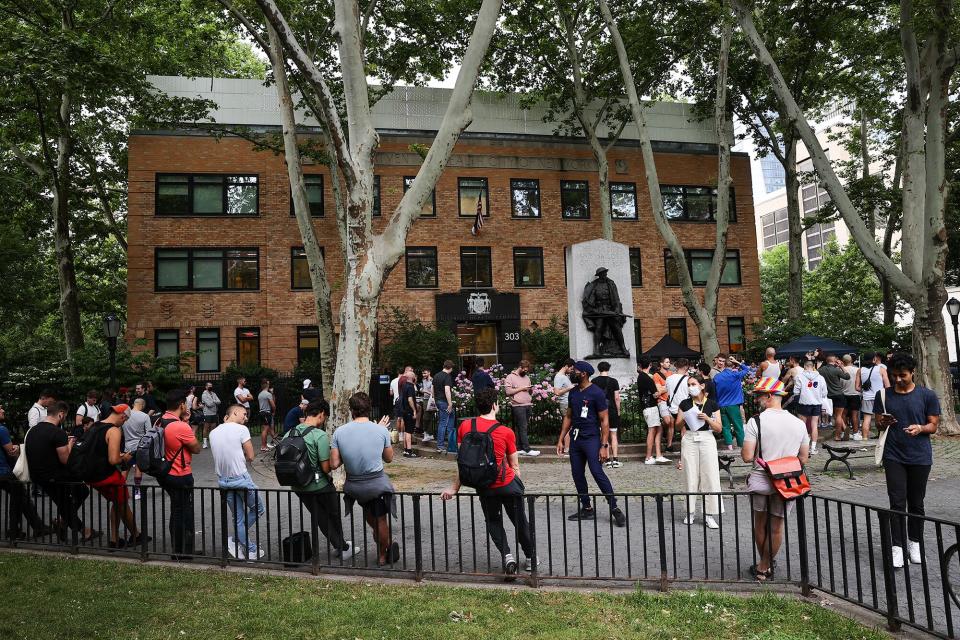Fauci Says Monkeypox Could Have 'Capability of Spreading Much More Widely'

- Oops!Something went wrong.Please try again later.
Getty Monkeypox
With cases of monkeypox on the rise, health officials are urging people to pay more attention to the outbreak.
"This is something we definitely need to take seriously. We don't know the scope and the potential of it yet, but we have to act like it will have the capability of spreading much more widely than it's spreading right now," Dr. Anthony Fauci, director of the National Institute of Allergy and Infectious Diseases (NIAID) told CNN on Saturday.
Dr. Scott Gottlieb, former head of the Food and Drug Administration, commented about the severity of the situation on Sunday's Face the Nation: "I think the window for getting control of this and containing it probably has closed. If it hasn't closed, it's certainly starting to close," Gottlieb said.
RELATED: CDC Issues New Guidance on Monkeypox Symptoms as Cases Rise in the United States
As of last Friday, the number of U.S. cases reached 1,469, up from 929 confirmed cases earlier in the week, according to the CDC's 2022 Monkeypox Outbreak Global Map. There are 12,556 cases worldwide, according to the agency.

Tayfun Coskun/Anadolu Agency via Getty
Dr. Anne Rimoin, a UCLA epidemiology professor who spent two decades in the Democratic Republic of Congo studying monkeypox, said there is likely an undercount due to a lack of testing.
Rimoin spoke to NPR last week, criticizing world leaders for initiating a global response to monkeypox only when it spread beyond Africa.
"This virus has been spreading in marginalized and vulnerable populations [in Africa] for decades, and we've done nothing about it," Rimoin told the outlet. "We have known that monkeypox is a potential problem for decades."
The virus is named monkeypox because it was first identified in 1958 in colonies of monkeys. The first human case of the virus was found in 1970 in the Democratic Republic of the Congo, according to the CDC.
RELATED VIDEO: People of the Year 2020: Anthony Fauci
The disease mostly transmits through skin-to-skin contact, according to The New York Times. While there have been fatalities in Africa, the publication reports that the U.S., which had its first case recorded on May 18, has yet to have any deaths.
Never miss a story — sign up for PEOPLE's free daily newsletter to stay up-to-date on the best of what PEOPLE has to offer, from juicy celebrity news to compelling human interest stories.
Monkeypox first causes fever, headache, muscle aches, chills and swollen lymph nodes, and after one to three days patients develop a rash that spreads over the body and turns into fluid-filled lesions. The rare virus can spread through respiratory droplets, but is most likely to transmit from touching body fluids or the rashes.
RELATED: Expert Says Monkeypox Outbreak was Avoidable, Virus Was 'Potential Problem for Decades'
Last month, the Department of Health and Human Services announced vaccinations will now be available to anyone with presumed exposure to the virus, in addition to individuals with known exposure who were already being offered immunizations.
HHS Secretary Xavier Becerra said the department will release 56,000 doses of the Jynneos vaccine immediately, with an additional 240,000 doses being made available in the coming weeks. In total, 1.6 million doses of the vaccine are expected by the end of the year.

